Learning to Play an Instrument at CSM
‘At CSM, our principal objectives are to develop each student’s musical skills to the very best of their individual ability and within a nurturing and supportive environment.
It’s easy to play any musical instrument. All you have to do is play the right key at the right time and the instrument plays itself.
Johann Sebastian Bach (1685 – 1750)
Our wholistic approach seeks to develop:
- technique, agility and creativity at the student’s practical instrumental class
- academic reading, writing and compositional skills at musicianship theory class
- growing confidence in performing through student participation in our summer and winter concerts series, external examinations and Feiseanna.’
Eileen Brogan
Principal
We are very happy with CSM. Ferdia really enjoys his piano and theory and the CSM staff have been excellent. Ferdia also enjoys participating in the various competitions like the Feis Ceoil and Newpark. Ferdia really enjoyed his musical Theatre Classes this year with Victoria. It was also great that he performed in the two CSM concerts with the Musical Theatre Group. Eileen and the rest of the CSM staff are doing a great job.
Fiachra O’Cairbre, NUIM, Maynooth, Co. Kildare
The Piano – from 5 years
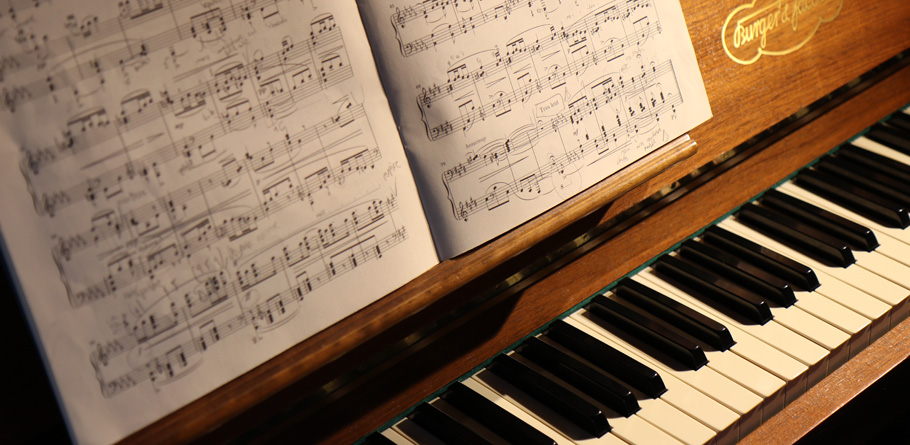
The piano is an excellent instrument to learn first. You learn to play beautiful melodies and accompany yourself with eloquent chords. This is one of its most unique qualities.
Weekly classes generally includes technical development playing scales and exercises and developing agility and independence of the hands learning and performing popular and classical repertoire.
Studying piano has been shown to improve your memory and build good habits like focus, perseverance, diligence and creativity. Playing piano has been shown to increase spatial-temporal ability, which figures heavily in math, science and engineering.
Cannot recommend this school enough. My daughter started attending this music school at 3 years of age, attending pre instrumental classes. She has now reached Grade 8 piano in her piano exams. My son also attended and learned piano. There was no problem when he decided to take a break from doing grade exams and pick his own pieces to learn. All of the teachers are excellent and Eileen was always very helpful and accommodating.
Colm Mahady
The Violin – from 5 years
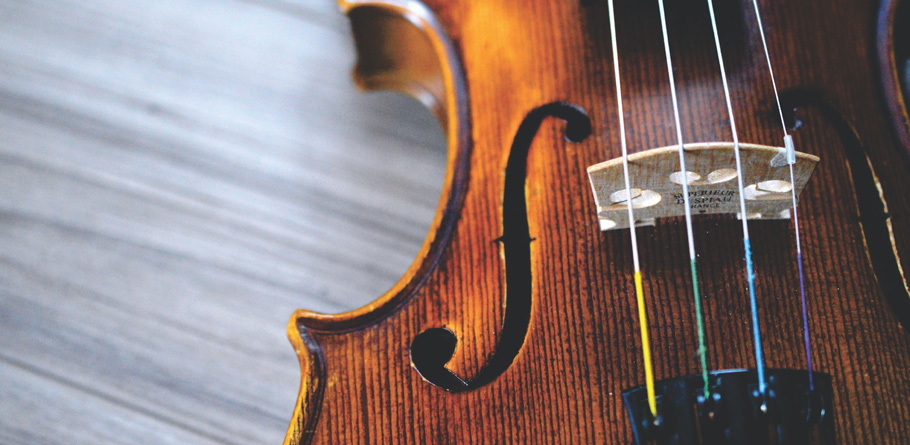
Playing the violin or viola is a unique and very rewarding experience. As you work to master your tone and technique, playing becomes more expressive producing a sound that most resembles the human voice.
Weekly classes includes technical training, learning finger patterns, bow hold and pizzicato. Appropriate selected repertoire will help developing a singing tone with well centred and secure intonation.
Many studies show that playing the violin or viola even for just a year positively affects your brain’s capacity for memory. It can also improve your reading skills, language processing, speech and attention span.
And you can join an orchestra!
I would without doubt recommend the Castleknock School of Music. The teachers are fantastic. They are very committed, approachable and they have a great rapport with the children. My two children love their guitar and violin lessons and that is down to the style of teaching encouraged in the school.
Audrey McCormack
The Viola – from 7 years
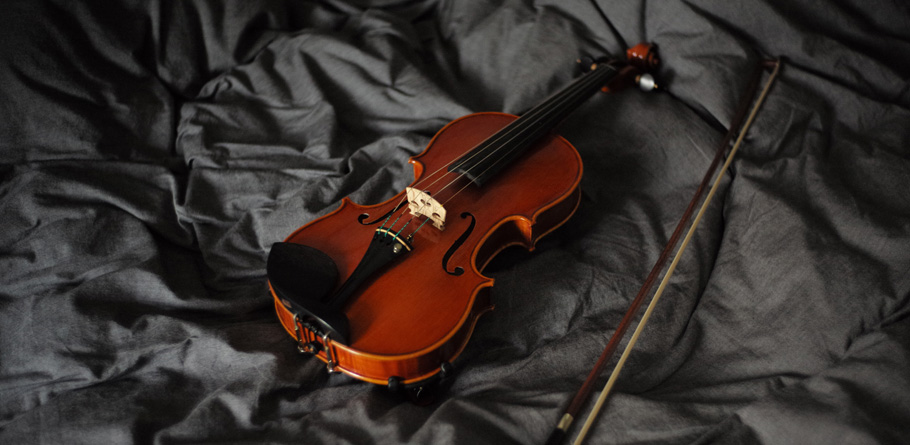
The viola is a slightly larger instrument than the violin producing a lower and deeper sound. The viola is played exactly the same way. Because it’s a bigger body, it’s more physically demanding. If you prefer not to play the melody line in an orchestra, then the viola is for you. The viola player plays the middle harmony line in the orchestra. Orchestras are always seeking good viola players.
Weekly classes includes technical training, learning finger patterns, bow hold and pizzicato. Appropriate selected repertoire will help developing a singing tone with well centred and secure intonation.
Many studies show that playing the viola even for just a year positively affects your brain’s capacity for memory. It can also improve your reading skills, language processing, speech and attention span.
And you can join an orchestra!
The Cello – from 6 years
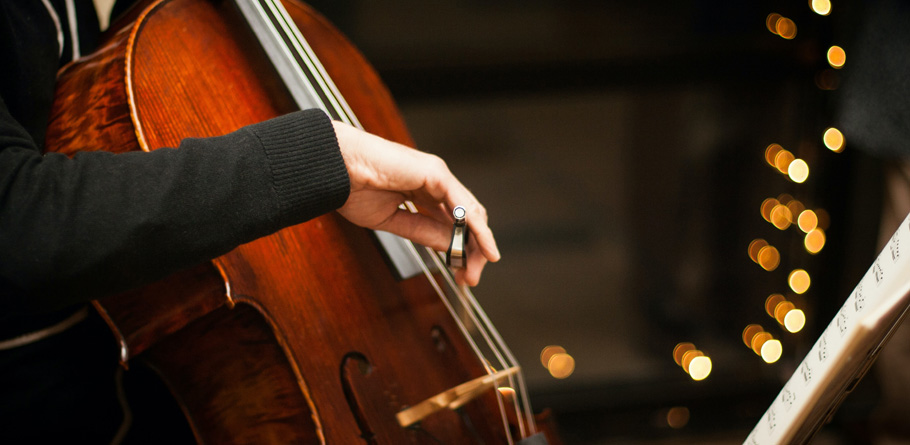
The cello through practice produces a deeply rich and beautiful singing tone compared for centuries to a person’s vocal range. It’s expressive qualities allow for immense creativity and self-expression.
Weekly classes includes technical training, learning finger patterns, bow hold and pizzicato. Appropriate selected repertoire will help developing a singing tone with well centred and secure intonation.
By combining various mental exercises in a structured manner, the process of learning stimulates and strengthens certain areas of your brain such as memory and comprehension. Moreover, learning the cello stimulates and creates connections that last all through adulthood.
And you can join an orchestra!
My two girls started in Mini Music Academy and now they’re in Grades 4/6. The teachers and school administration are very supportive of student’s learning at a professional level. One of my daughters is doing well in the orchestra, thanks to the excellent teaching of the music school. We’re so delighted to be with CSM!
Jen Alonsozana Remolacio
Acoustic Guitar – from 5 years
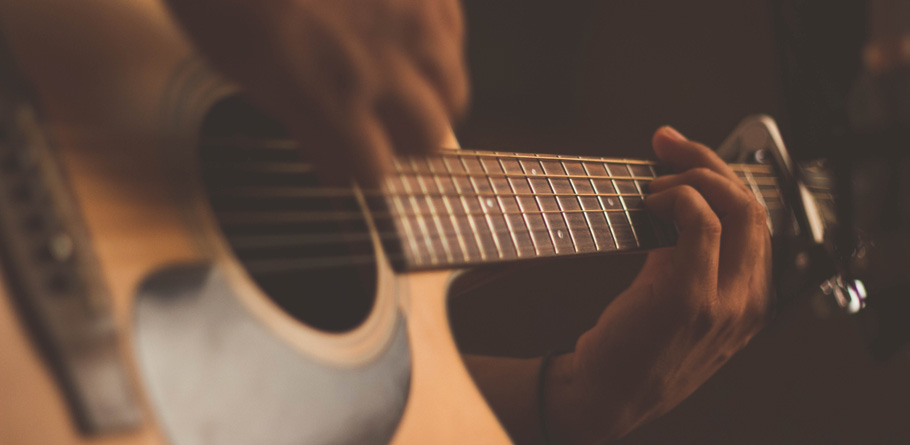
As you develop your technical prowess, the guitar produces a rich sound with excellent tone quality in your melodies and chord progressions. It’s versatility allows you to play acoustic, electric, bass and in a wide range of styles to suit your mood and creativity. Advanced students can progress to steel strings which produce a brighter and more resonant sound.
Weekly classes include learning chords, scales, developing fretboard and strumming technique. An interesting repertoire embracing folk, country, blues, rock and pop chosen to suit the age and level of each individual student.
Playing and mastering the guitar improves memory, concentration, eye and hand co-ordination. It builds confidence, releases your creativity and it’s a wonderful form of self-expression.
And you can throw it over your shoulder and you’re good to go!
My son has been learning guitar at the Castleknock school of music for 3 years now and loves it. The teachers are very child friendly and focused and regularly facilitate the children being able to perform in a safe and supportive environment. Excellent preparation for either exams or just informal playing. Very much recommended.
Dermot Day
Classical Guitar – from 5 years
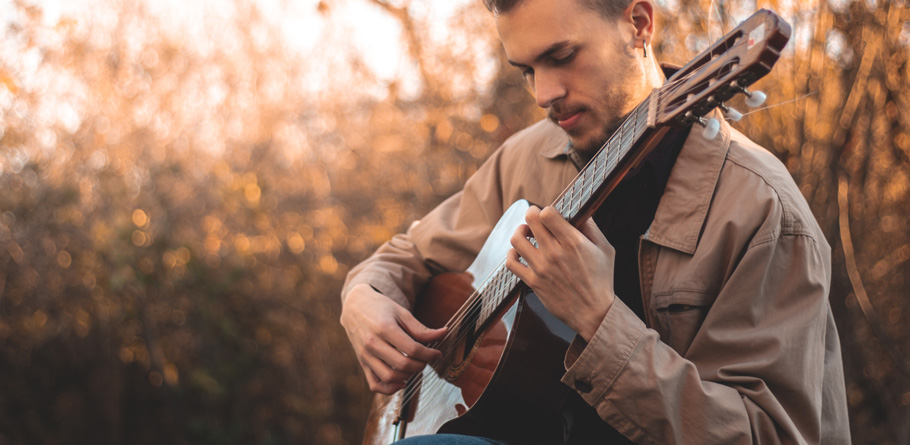
The classical guitar is played with an acoustic instrument on nylon strings. If you choose to learn ‘classical guitar’, you will be taught in the classical style and as you develop your technique and prowess, your repertoire will include classical guitar pieces and transcriptions. The “classical guitar” is the traditional guitar of Spain so you will learn the flamenco style which originated in the region of Andalusia in Southern Spain.
Weekly classes include technical development, scales, left hand finger dexterity, right hand technique learning one and two string melodies, developing a well centred sound learning and performing carefully chosen repertoire to suit the age and level of the individual student.
Playing and mastering the guitar improves memory, concentration, eye and hand co-ordination. It builds confidence, releases your creativity and it’s a wonderful form of self-expression.
And you can throw it over your shoulder and you’re good to go!
Electric Guitar – from 5 years
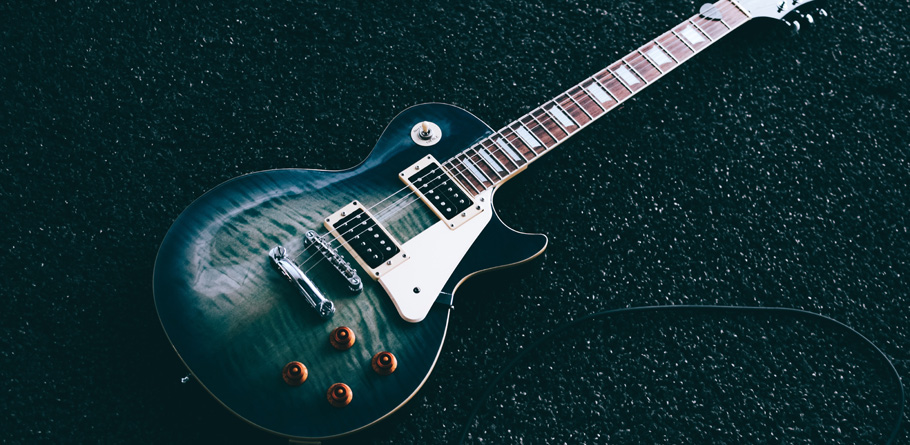
The electric guitar has three major advantages over the acoustic guitar. It has a thinner body and neck, the strings are closer to the fretboard making it easier to play enabling the player to sound really good within a relatively short space of time.
Weekly classes include technical development, learning chords and scales. Strumming and picking effectively and working with your amplifier. Developing a clear vibrant sound while playing and performing selected repertoire suitable to the age and level of the student.
Playing and mastering the guitar improves memory, concentration, eye and hand co-ordination. It builds confidence, releases your creativity and it’s a wonderful form of self-expression.
Although it’s a lighter instrument to carry, you will need an amplifier to bring to your gig with you!
Bass Guitar – from 7 years
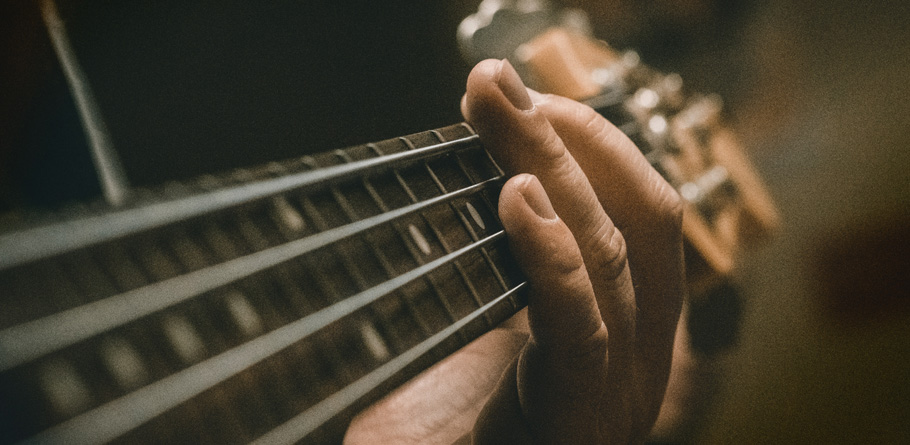
The bass guitar is also called the electric bass and is the lowest-pitched member of the guitar family. It can have 4 to 6 strings. The bass guitar is an electric instrument so it requires an amplifier. Bass players supplement the rhythm and melody in a band and are always in demand for band work.
Weekly classes include technical development, fretboard knowledge, scales and fingering techniques. Rhythm and timing are essential skills to playing, performing and accompanying.
Playing and mastering the guitar improves memory, concentration, eye and hand co-ordination. It builds confidence, releases your creativity and it’s a wonderful form of self-expression.
Although it’s a lighter instrument to carry, you will need an amplifier to bring to your gig with you!
The Recorder – from 5 years

In learning the recorder, children learn the correct embouchure and develop breath control to articulate their sounds.
Weekly classes include technical development, breath control, fingering and developing a good well rounded sound. Coordinating rhythm with fingering and learning suitable songs to suit the age and level of the student.
The fundamental musical skills needed to play any woodwind instrument are also learnt on the recorder making the recorder an excellent instrument to learn as a pre-cursor to learning the flute, clarinet or saxophone.
My sons have been attending Castleknock School of Music for over 14 years, each have developed a love for music and hope to study it in college. Over the years they were privileged to have some great teachers who have gone on to make names for themselves in radio, television and on the stage.
Jennifer Davis
The Flute – from 7 years
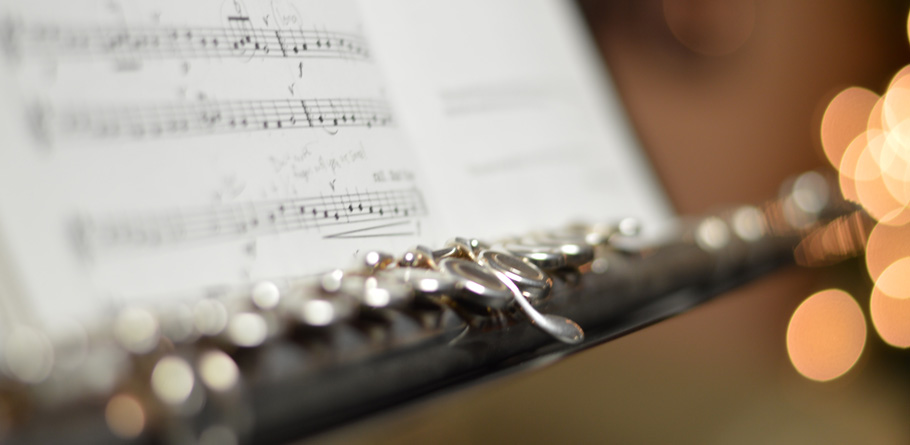
Flutes are available on loan from our Apply and Try Scheme!
The flute is the easiest of the woodwind instruments because there is no reed to blow through. As you develop your technical skill, you will learn to evoke varied tones best described as light, airy, poetic, mellow, bright, ethereal, rich, soft, graceful, brilliant, clear or shrill to portray a mood or style.
Weekly classes include technical development, scales, breath control, posture and finger dexterity. Developing a well-rounded and centred tone is developed learning selected repertoire suitable for the age and level of the student.
The art of practising and learning the flute improves body coordination, hand, eye and mouth coordination, strengthens core muscles, improves self-confidence and cultivates discipline. It’s the easiest of the woodwind instruments and is excellent for your physical and mental well-being.
And you can become a member of an orchestra, pop it in your bag and you’re good to go!
CSM is a friendly, efficiently run music school with highly qualified and competent teachers. I resumed flute and theory lessons as an adult learner after a long break and I finally passed my grade 8 after a year of lessons with CSM. Students are encouraged to perform regularly at concerts.
Annette Sohor
The Clarinet – from 8 years
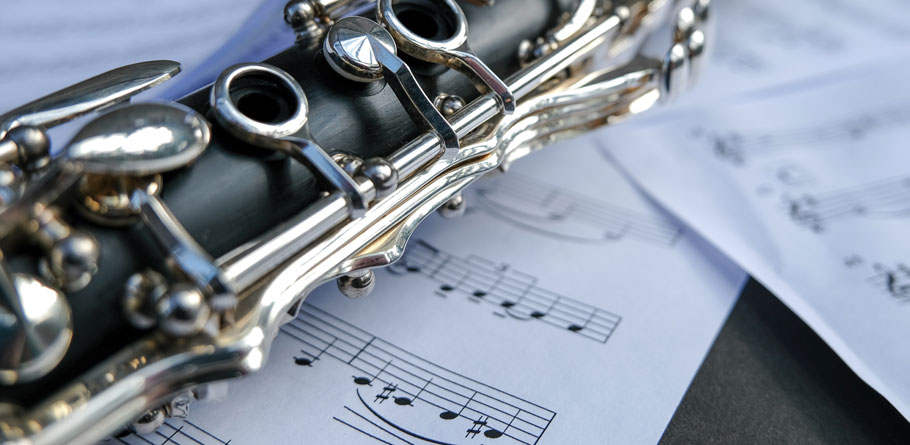
Clarinets are available on loan from our Apply and Try Scheme!
The clarinet is a single reed instrument making it trickier to learn than the flute but easier to play than the oboe which is a double reed instrument. Learning to play the clarinet is a rewarding experience. It’s unique sound coupled with its versatility enables you to develop beauty of tone synonymous with a soft, rich full and romantic mood while its rhythmic dexterity, allows for jazz improvisatory solos which can be performed with passion and energy.
Weekly classes include technical development, scales, working with the reed, breath control, posture and tone production. Rhythmic agility and dexterity is developed learning a varied repertoire suitable to the age and level of the student.
Playing the clarinet can have a significant positive impact on both the body and brain. If you learn the clarinet and stick with it, you will start to see significant improvements in your hand-eye coordination, memory skills, as well as in your hearing and listening ability.
And you can become a member of an orchestra, pop it in your bag and you’re good to go!
We are delighted with the clarinet tuition Sadie is receiving from Antonello. He is a great teacher and has a lovely manner.
Gilliann Pye
The Saxophone – from 8 years

Clarinets are available on loan from our Apply and Try Scheme!
The saxophone is a single reed instrument making it trickier to learn than the flute but easier to play than the oboe which is a double reed instrument. It’s worth noting that the saxophone is the only instrument in wide use today that was invented by a single individual — a musical instrument designer named Adolphe Sax, hence the name saxophone. Sax was born in Belgium in 1814.
As you develop your prowess on the saxophone, your sound will become warm, full and rich.
Weekly classes include technical development, working with the reed, scales, tone production in the high and low registers, posture and breath control. Rhytmic precision and versatility is developed playing and performing in classical, romantic and jazz idioms.
Learning an instrument like the saxophone improves memory function, teaches patience, perseverance and other important leadership skills.
And you can be a soloist, be a member of a band or jazz orchestral ensemble, take your instrument in your bag and you’re good to go!
Keep up the good work! We are as happy as Larry with CSM!
Eilis Akbari
The Oboe – from 10 years
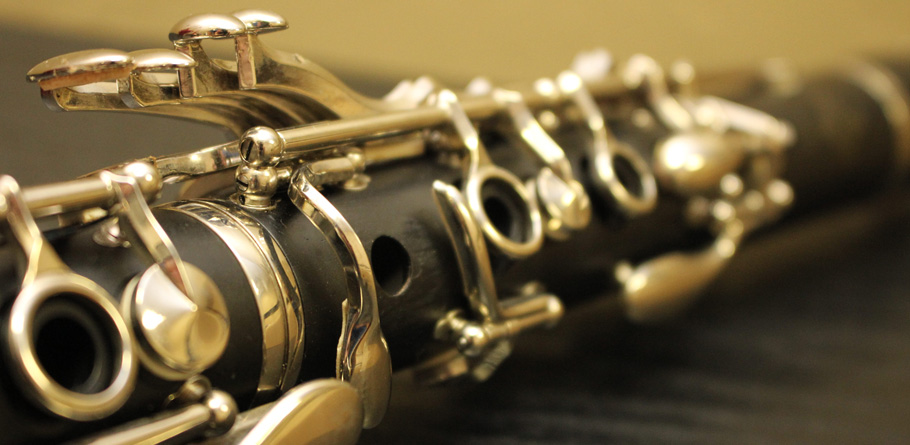
The oboe is a double-reed instrument making it the most trickiest of woodwind instruments. It can be a very rewarding instrument to learn to play, and once the feeling of a good tone is produced it is hard to ignore the allure. Students who are successful with the oboe are very detail-oriented, patient, intellectual, and curious.
Weekly classes include technical development, working with the double reed, scales, breath control and tone production. Developing a pure well centred sound is mastered playing and performing repertoire suited to the age and level of the student.
Learning an instrument like the oboe improves memory function, teaches patience, perseverance and other important leadership skills.
And you can become a member of an orchestra, pop it in your bag and you’re good to go!
It’s the oboist that tunes the orchestra up before performance by playing the note ‘A’ and each member of the orchestra catches the note and tunes up.
Thank you to Eileen Brogan & Brendan Finan for their excellent teaching and for their positivity and encouragement. Thanks also for the great concerts. And Eileen, you personally create a calm, relaxing and loving atmosphere that helps students to feel at ease and confident. Darren has benefited enormously from this. Thank you so much.
Dympna Hughes
The Voice – from 5 years

Develop your vocal skills learning songs from an array of genres including songs from the musicals, popular genres, classics, music theatre or opera. Improve your vocal tone, range, diction, musical skills, stage presence and confidence. Singing helps with literacy, builds confidence in speech and language development.. When playing musical games, you are spotting patterns, counting, dividing into groups; some of the key building blocks of a mathematical education.
Weekly classes include developing vocal technique, breath control, posture, voice projection and clear diction. Well centred intonation and beauty of tone is developed singing and performing songs in a wide range of styles.
By learning to sing, you develop your musical ear and start to listen to yourself and other singers with a greater level of appreciation and understanding. It’s great for your physical and mental health, helps you connect socially and makes you happy – a scientific fact.
And you can sing as a soloist, accompanied or unaccompanied, sing in a band. You carry your voice with you and you don’t have to purchase an instrument!
My daughter has been a student of Castleknock School of Music for many years and I have to say that the CMS teachers have been so diligent in their teaching during this pandemic. They worked tirelessly over Zoom for both her Vocal and Theory Classes and prepared her for her exams so very well. I would not hesitate to recommend this fantastic school. Thank you to all the staff for growing my daughters love and appreciation of music.
Samantha Lyons
The Ukulele – from 5 years
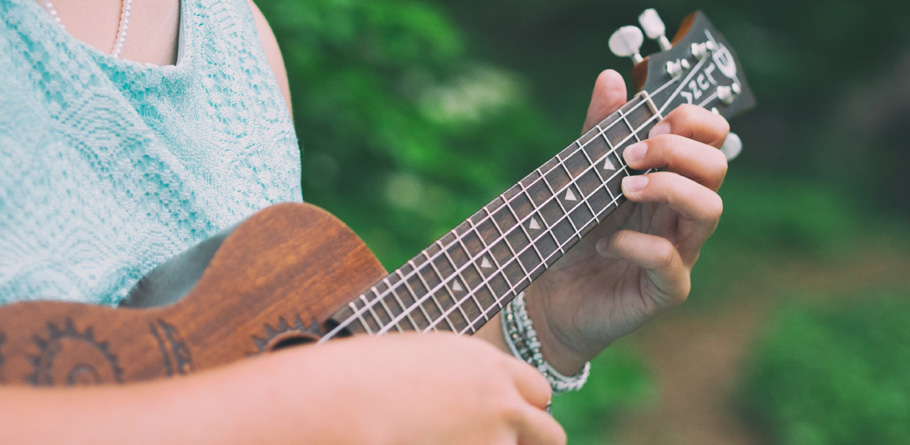
The ukulele is a fantastically versatile instrument. It’s easy to learn, it’s affordable, portable, fun and friendly. It sounds great and makes you happy – an anecdotal fact. Playing the ukulele increases eye-hand coordination, lowers stress levels, improved brain function, focus, and mental clarity. Other benefits include social interaction, a sense of achievement, and improved reading comprehension
Weekly classes include technical development, learning chords, strumming techniques, tuning and finger dexterity. Developing flow and agility is achieved playing and performing in a variety of popular styles with repertoire suited to the age and level of the student.
As you develop your ukulele playing, your tone will become calm yet rich, full and rhythmically entertaining. The ukulele is taught by our guitar teachers.
You can accompany yourself or others, put it in your bag and you’re good to go!
This is Nathan’s first year and I am amazed at his progress. Not only has he made great progress but he really enjoys learning and playing music and that’s all thanks to the teachers at CSM. The practice diary is a great way to communicate with the teacher and monitor Nathan’s progress.
Audrey Cleverdon
The Drums – from 5 years of age
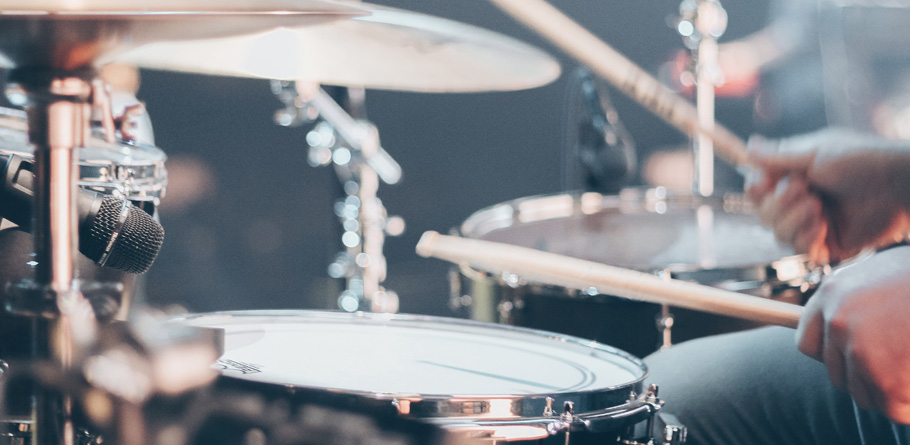
Drumkits can be the standard acoustic kit or if you have concerns about the sound level in your home, there are various electronic drum kits available for purchase and sound pads that go on acoustic kits to dampen the sound. As you develop your drum skills, your coordination will improve, your rhythmic precision and vitality will kick in. Great for your health and well-being and very therapeutic.
Weekly classes include technical development, rhythmic training, working with snare, cymbal and bass drum and coordinating beats with rhythmic precision. Developing flow and rhythmic precision playing and performing solo pieces and accompanying exciting repertoire using lead sheets.
Learning drums can improve brain activity, boost academic performance especially in math; after all, drummers have to count! Drumming can also help students learn fractions, frequencies and intervals.
And you can jam at home, with friends and join a band!
I would without doubt recommend the Castleknock School of Music. The teachers are fantastic. They are very committed, approachable and they have a great rapport with the children. My two children love their lessons and that is down to the style of teaching encouraged in the school.
Audrey McCormack
